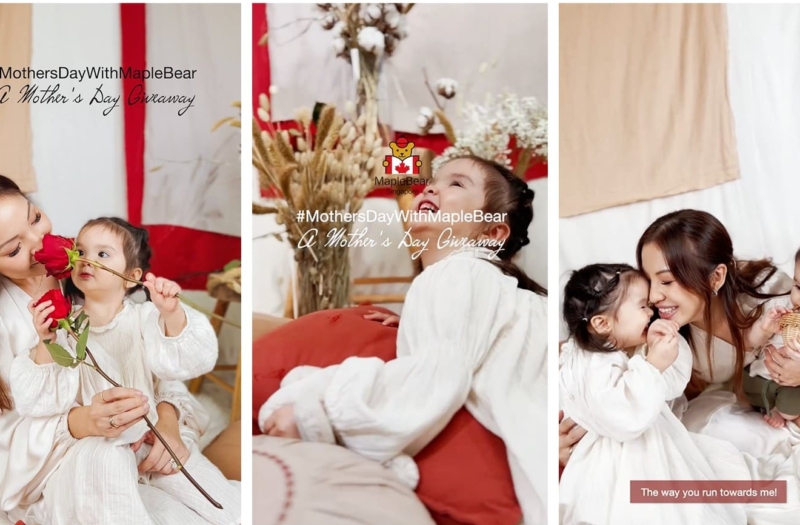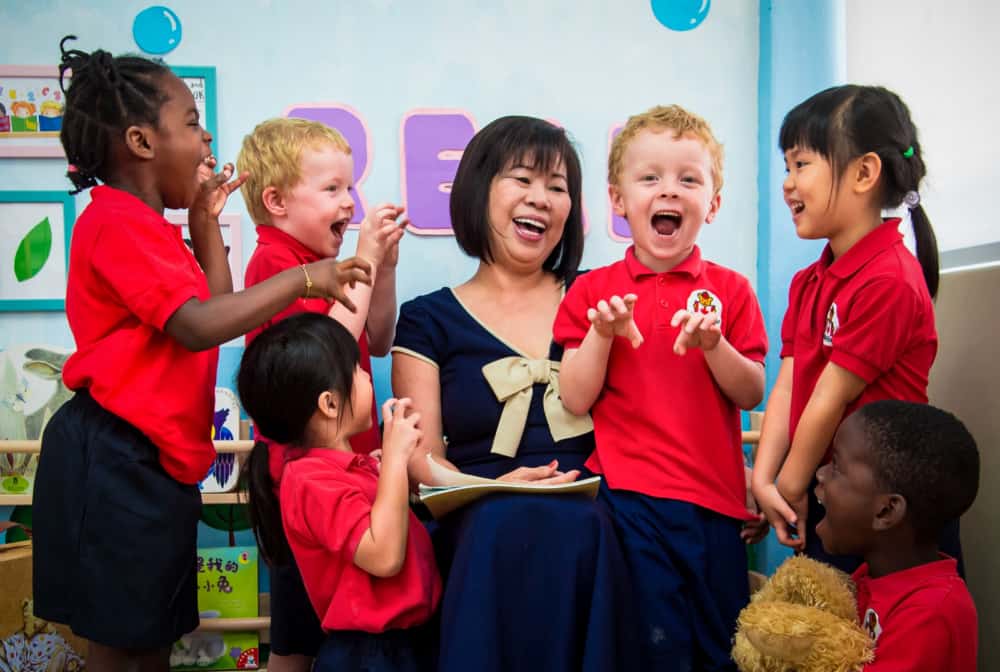
8 Questions for Our Preschool Education Expert – Mrs. Patricia Koh
Q1. What makes a good preschool?
A good preschool is one that is safe, secure and stimulating for young children.
It is a place where parents feel safe to leave their children. This means someplace that is safe not only in terms of the physical environment, but where children are also emotionally, socially and developmentally ‘safe’.
However, it is good to highlight that physical safety does not mean a place without steps, drains, curbs or pebbles to step on. In fact, children who grow up in a slightly more challenging environment – one where they need to jump over curbs, watch out for small drains, or learn to walk up and down the stairs – will become physically more agile and fitter compared to those who are overly protected and not given the chance to confidently explore.
A good preschool is also one that is emotionally & socially safe for young children. Preschool teachers must always be sensitive to a child’s emotions. They must try to understand them, whether they are feeling sad, afraid, shy, a lack of confidence or even loneliness.
Do not dismiss your child’s feelings. We must learn to respect their feelings when in conversation or giving instructions. Children who are emotionally safe tend to be socially safe. They need to grow up in a kind, considerate and happy environment. Only then will they truly blossom.
What is intellectual ‘safety’ and stimulation and why is it important during the growing stages? When children are forced to count, read, write or spell without the proper guidance, they might grow up thinking they are not smart enough. They may experience difficulties in performing their best later on due to constant perceived ‘failures’. Let the positive outweigh the negative. A child should not have the constant fear of failure looming over his/her shoulder. Instead, each of their learning stages should be filled with more successes. It is vital for children to be given the chance to celebrate their childhood. Always remember, the joy of childhood is priceless and no amount of money can ever buy it back.
Q2. How can a good preschool education help children develop later in life?
A good preschool education is crucial in laying the foundations for future learning. Longitudinal studies have clearly shown that children with great early childhood experiences not only cope better during tertiary years, but also appear to find more meaningful jobs and achieve greater success in establishing long-lasting relationships. It is therefore essential to pay attention to what your child experiences before he/she turns seven.
Q3. What is student-focused learning? How does MapleBear support this?
MapleBear believes all children deserve a great childhood and we continuously ensure that their journey with us will be the most meaningful and memorable one. Our top priority is our children’s happiness. We believe a child can learn almost anything naturally when that is first achieved.
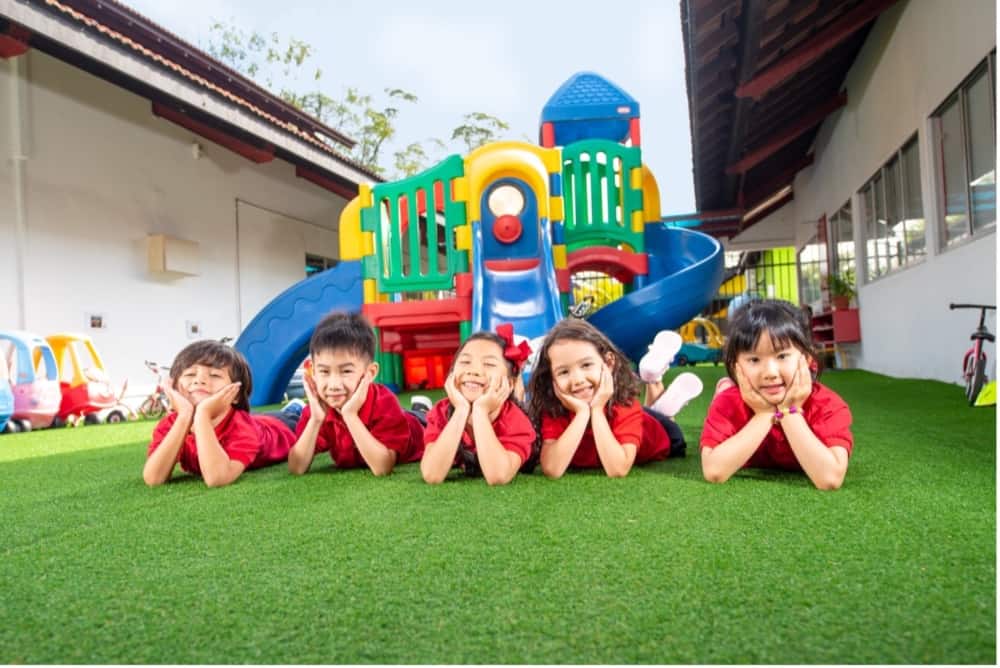
Our teachers understand that they should not try to ‘teach’ their lessons but ensure that children love to share their thoughts with us. Enthusiasm and inquisitiveness are important. Rather than asking all the questions, our teachers aim to spark the natural curiosity within each and every child. As much as possible, we want our children to do the asking.
Our curriculum is designed by a panel of early childhood experts and teachers – those who have worked closely with children and understand the art of meaningful learning. MapleBear teachers are immersed in a rich and creative learning environment along the years. They receive the training and support needed to help scaffold a young child’s learning journey.
Q4. MapleBear’s curriculum was developed in Canada. How does the curriculum translate to a local learning environment?
The MapleBear teaching methodology has been developed by Canadian professionals, based on the bilingual experience and the dedicated educational practices that make Canadian education one of the best worldwide. In Singapore, we ensure standards adhere to local regulations and are tailored specifically to our educational context. Our team of educators have had years of experience in the early childhood education sector. They support MapleBear’s Early Years Foundational Education in Singapore and South East Asia. We continuously work to ensure our curriculum combines the best of Canadian and Singaporean educational pedagogy and practices to suit the children of Singapore and the whole of Asia.
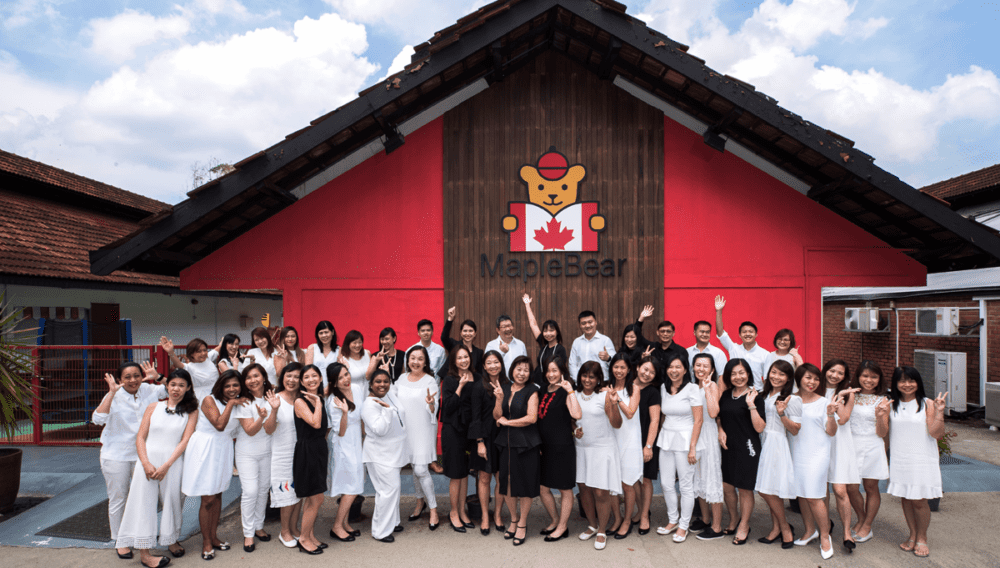
Q5. How can parents ensure their children grow up effectively bilingual? What kind of environment should you look out for in a preschool to support this?
For young children to become effectively bilingual, they will need to spend the first 5 to 6 years of their lives immersed in a rich language environment, that is an environment that promotes phonological awareness without the fear of failing or making mistakes.
When children are made to sit quietly in rows in front of a chalkboard, forced to pay attention to a teacher’s rigorous lessons or asked to copy information mechanically from the board, they will not have the same measure of bilingual success as compared to those learning under a total immersion model.
Q6. What are some tips for parents to stimulate their child’s learning and growth at home?
When parents speak to children in full grammatical sentences, children will naturally build up a stronger language foundation and become proficient in the languages they are exposed to.
Parents who are bilingual can begin speaking to children in their mother tongue as soon as they come into our world. Children become aware of languages through speech in meaningful context as well as through songs, stories, pretend talk, simple interactive games and daily instructions.
Our homes should be filled with books in every corner of the room, where children are always reminded to pick up a story to read instead of simply spending their time on television, computer games or mobile apps.
Q7. Besides a strong focus on bilingualism, how else does MapleBear promote an all-rounded learning experience?
MapleBear’s bilingual literacy programme is based on the premise that two languages are learned most effectively when a child is immersed in a rich and conducive language environment, one filled with music, songs, stories, rhymes, games, art, cookery and outdoor activities.
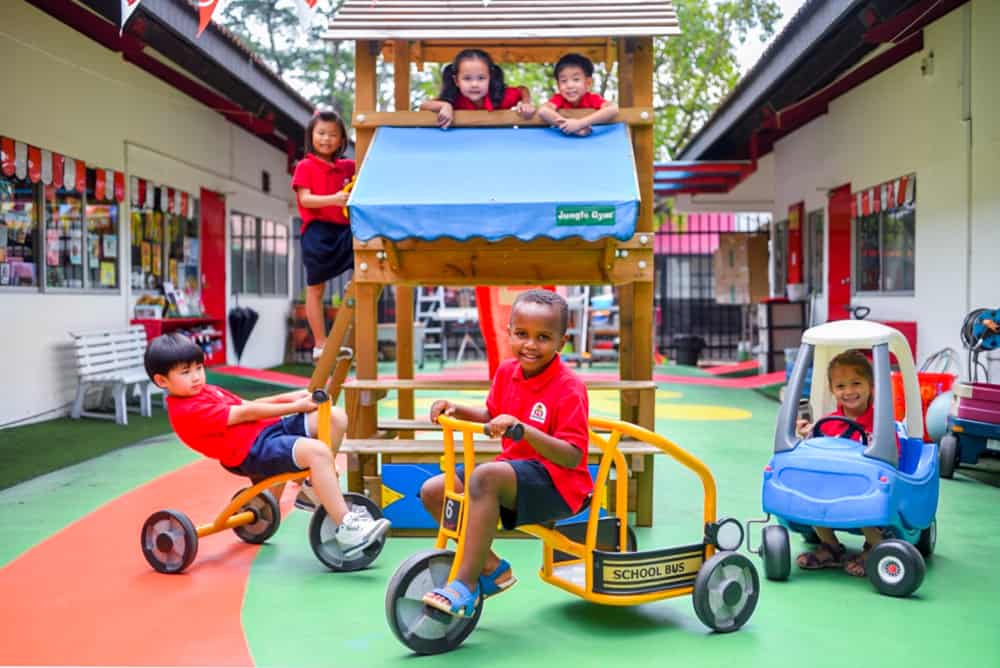
Children effectively master bilingualism when they are wholly engaged in the use of language and when the opportunity arises for them to employ both languages meaningfully and in the right context. Languages should not be taught to children but rather ‘caught’ as they grow along their educational journey.
Therefore, MapleBear believes in letting children explore languages in various settings, experiment with the complex sounds of languages, expand on different languages in a fun-filled way, experience the wonders of words and engage in conversations throughout their every day in school. In this way, children will achieve not only academic success but will be well-prepared to connect with their world socially, emotionally and creatively.
Q8. What are some tips for parents to keep track of their child’s progress and experience in preschool?
To know if your child is progressing well in preschool and truly enjoying their day-to-day experiences, we can:
# Tip 1: Use the photographs sent home as a starting point to have a conversation with your child.
DO SAY: This looks like a fun thing you did at school.
DO NOT ASK: What did you do at school? (Most children do not respond as well to direct questions).
DO SAY: I wish I was in school today too… you must have had a great time learning new songs and listening to stories (if your child sings for you, you can either join in or simply cheer your child on).
DO NOT ASK: “What song did you learn today?”
Once again, avoid direct questions or phrase it in a way that encourages them to speak with you instead. It might cause pressure to your child when put on the spot to recall a tune or lyric. What often happens is that the conversation dies out.
# Tip 2: Connect with your child’s teacher on a regular basis. Find out what you can do at home to further enrich your child’s learning.
DO NOT ASK: “Do you have any homework for my child?” – refrain from asking the teacher to give extra homework. Instead, ask for a book or activity recommendations!
ASK: Are there any stories that you have read in school that I could borrow for a day or two? My child has been talking about a Gruffalo and I am happy to read that together at home too.
# Tip 3: Observe your child’s behaviours and evaluate the certain behaviours that can be better managed at home. Young children who scream for attention at home and display disruptive behaviours may exhibit the same patterns in school.
Check-in with your child’s teachers regularly and find out how you can help support your child’s behaviour in school.
As the saying goes, it takes a village to raise a child! As educators, we certainly need support from parents to best facilitate a young child’s learning. MapleBear is fortunate to have parents who continuously work with us to give children the childhood they deserve. The rest can wait.
Have a question about preschool & kindergarten education? Feel free to contact us here or visit a centre near you today!


